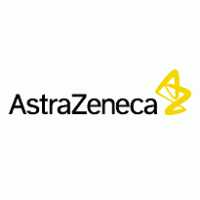
22 Aug Uncontrolled Asthma: Tezepelumab Reduced Exacerbation Rates in Phase 2 Study
MedicalResearch.com Interview with:

Dr. Frank Trudo
Frank Trudo, MD MBA
Vice President, US Medical Affairs
Respiratory & Immunology
AstraZeneca
MedicalResearch.com: What is the background for this study?
- Multiple pathways drive asthma. T2 inflammation-driven asthma is present in many patients with severe asthma and is typically characterized by elevated levels of T2 inflammatory biomarkers, including blood eosinophils, serum IgE and fractional exhaled nitric oxide.
- Some patients with severe asthma do not present with increased T2 inflammation. However, currently available biologic therapies only target T2-driven inflammation.
- The PATHWAY trial evaluated the efficacy and safety of three dose regimens of tezepelumab versus placebo as an add-on therapy in patients with a history of asthma exacerbations and uncontrolled asthma despite receiving inhaled corticosteroids/long-acting beta2-agonists with or without oral corticosteroids and additional asthma controllers. Overall, the trial showed tezepelumab significantly reduced annualized asthma exacerbation rates of 71%.
- This post-hoc analysis presented virtually at ATS evaluated the effect of Tezepelumab treatment on asthma exacerbation rates on a seasonal and weekly basis.
MedicalResearch.com: What are the main findings?
 Response: Overall, 550 patients were randomized to receive subcutaneous tezepelumab 70 mg every 4 weeks (n=138), 210 mg every 4 weeks (n=137) or 280 mg every 2 weeks (n=137) or placebo every 2 weeks (n=138). Data were reported for the tezepelumab 210 mg and pooled tezepelumab dose groups.
Response: Overall, 550 patients were randomized to receive subcutaneous tezepelumab 70 mg every 4 weeks (n=138), 210 mg every 4 weeks (n=137) or 280 mg every 2 weeks (n=137) or placebo every 2 weeks (n=138). Data were reported for the tezepelumab 210 mg and pooled tezepelumab dose groups.
- Annualized asthma exacerbation rates (AAER) were reduced by 64% (95% confidence interval [CI]: 22-83), 80% (95% CI: 41-93), 82% (95% CI: 48-94) and 67% (95% CI: 21-86) in the tezepelumab 210 mg group versus placebo during winter, spring, summer and fall, respectively.
- In the pooled tezepelumab group, AAER was reduced by 63% (95% CI: 37-78), 70% (95% CI: 42-85), 77% (95% CI: 56-88) and 63% (95% CI: 34-79) versus placebo across the same seasons, respectively.
- In the placebo group, 1.5-3.7% of patients experienced two or more exacerbations across the seasons, compared with 0.0-0.8% in the 210mg group, and 0.0-0.5% in the pooled tezepelumab group.
- In the placebo group, the mean numbers of days with exacerbations per patient were 2.5, 1.6, 1.9 and 2.3 during winter, spring, summer and fall, respectively, compared with 0.6, 0.4, 0.2 and 0.7, respectively, in the 210 mg tezepelumab group, and 0.9, 0.5, 0.5 and 0.8, respectively, in the pooled tezepelumab group.
MedicalResearch.com: What should readers take away from your report?
Response: There remains a significant unmet medical need among the approximately 10% of the world’s asthma patients living with the most severe form of the disease. These individuals have asthma that is often uncontrolled despite high doses of standard-of-care asthma controller medicines. They experience frequent exacerbations and limitations on their quality of life, with their lives punctuated by frequent bouts of gasping for air and unplanned physician visits.
In patients with severe, uncontrolled asthma in the PATHWAY trial, tezepelumab reduced annualized asthma exacerbation rates, the proportion of patients with two or more exacerbations, and the mean number of days with exacerbations per patient versus placebo across all seasons.
MedicalResearch.com: Is there anything else you would like to add?
Response: Thanks to advancements in science, there is a new way of thinking about severe asthma inflammation by focusing on the epithelium as the starting point for an overactive immune response. Thymic Stromal Lymphopoietin (TSLP) is a key epithelial cytokine that acts at the top of the inflammatory cascade. TSLP can play an important role in the inflammatory process for patients whose severe asthma is triggered by varying types of epithelial insults, regardless of levels of T2 inflammatory biomarkers.
Citation:
ATS 2020 abstract:
American Journal of Respiratory and Critical Care Medicine 2020;201:A4257
Seasonal Variability of Exacerbations in Patients with Severe, Uncontrolled Asthma and Clinical Benefits of Tezepelumab: Results from the PATHWAY Phase 2b StudyCorren , M. Karpefors , A. Hellqvist , J.R. Parnes , G. Colice ,
https://doi.org/10.1164/ajrccm-conference.2020.201.1_MeetingAbstracts.A4257
[subscribe]
[last-modified]
The information on MedicalResearch.com is provided for educational purposes only, and is in no way intended to diagnose, cure, or treat any medical or other condition. Always seek the advice of your physician or other qualified health and ask your doctor any questions you may have regarding a medical condition. In addition to all other limitations and disclaimers in this agreement, service provider and its third party providers disclaim any liability or loss in connection with the content provided on this website.
Last Updated on August 22, 2020 by Marie Benz MD FAAD
